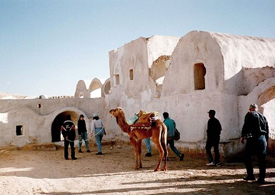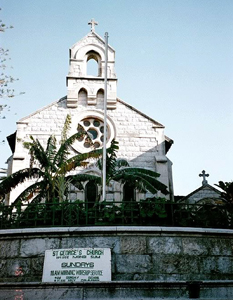Update: October, 2012
Last month, protesters stormed the U.S. Embassy compound in a suburb of Tunis. They damaged the exterior, but the chancery, the secure area, was not breached. No Embassy personnel were harmed. The American school, next door, was destroyed. A few days later, the State Department announced what is called “ordered departure.” All but essential American employees were ordered evacuated out of the country. Though I don’t know the specifics, essential employees probably included personnel to operate the consular section, the section that deals with the needs of American citizens living or traveling in Tunisia.
The situation has changed dramatically since I served as a consular officer in Tunisia, when tourists flocked to the beaches. Also, the fictional Kaitlin, who worked at the old U.S. Embassy in downtown Tunis, (Searching for Home), would be saddened by the differences in the country she enjoyed so freely in her first home overseas.
Update: August, 2012
The U.S. Peace Corps plans to send twenty volunteers to Tunisia by the end of 2012. Hundreds of Peace Corps volunteers served in Tunisa between 1961 and 1996. The new volunteers will teach English and help prepare students and professionals for future employment, among other tasks. High unemployment, especially among youth, contributed to the revolution that began in Tunisia in 2011. Since the conflict, Tunisia has elected a democratic government, and the U.S. has begun several programs to encourage this democratic process to expand.
My novel, Searching for Home, includes Tunisia as one of the settings for the book.
Birthplace of Arab Spring
Tunisia is the small North African nation now mentioned frequently as the birthplace of the ‘Arab spring.’ The movement took root in Tunisia at the beginning of 2011 as a protest against unemployment and government corruption. Then it spread to Egypt and other Arab countries.
I served at the U.S. embassy in Tunis, the capital city, from 1997 to 2000. At that time, a tour there was an enjoyable assignment for U.S Foreign Service officers choosing the sometimes unsettled Middle East.
One of the most progressive nations in the Arab world, Tunisia seemed an unlikely place for a revolution. Young women dressed in the latest Paris fashions. I don’t recall any of them wearing a head scarf. Many were students in Tunisian universities.
A Wealth of History
 Friends and family visited from the States. We strolled through the nearby ancient city of Carthage, home to Augustine and other church fathers in the early years of the Christian church. On a trek down to the Sahara, we caught sight of camel herds, then explored the desert movie setting for the original Star Wars films. A spouse in our embassy community was an extra in one of the films. Later we marveled at the well-preserved Roman amphitheatre in El Jem.
Friends and family visited from the States. We strolled through the nearby ancient city of Carthage, home to Augustine and other church fathers in the early years of the Christian church. On a trek down to the Sahara, we caught sight of camel herds, then explored the desert movie setting for the original Star Wars films. A spouse in our embassy community was an extra in one of the films. Later we marveled at the well-preserved Roman amphitheatre in El Jem.
Other friends and I boarded the train in downtown Tunis to visit the cemetery for American military personnel killed in Tunisia during Second World War campaigns against the Nazis.
Islam, Christianity, and Judaism Coexist
 The embassy during my assignment was located in downtown Tunis. On weekends, I would drive to the Embassy and park, then walk from there into the old city to worship in a centuries-old Christian church. The walk took me past a Muslim mosque and a Jewish synagogue. The Jewish settlement in Tunisia is ancient; some said it began with refugees from the conquest of Jerusalem by Nebuchadnezzar in 605 B.C.
The embassy during my assignment was located in downtown Tunis. On weekends, I would drive to the Embassy and park, then walk from there into the old city to worship in a centuries-old Christian church. The walk took me past a Muslim mosque and a Jewish synagogue. The Jewish settlement in Tunisia is ancient; some said it began with refugees from the conquest of Jerusalem by Nebuchadnezzar in 605 B.C.
During the week, work load permitting, I enjoyed riding the bus from my home to work. Once in a while, for exercise, I walked all the way. We ate in local restaurants. Our favorite was a Lebanese establishment a short distance from our house.
From Stability to Change
Tunisia at that time was perceived as a stable, progressive country, its beaches a destination for tourists from Germany and other countries. Golfers played on the links in Tunisia’s mostly sunny weather.
Since then, the U.S. embassy moved to a newer facility in a safer location out from Tunis after the terrorist attacks on U.S. embassies in east Africa. I notice from news pictures that some of the women appear to be wearing head scarves. The train station where my friends and I took the train was burned by rioters. The Tunisian president fled to Saudi Arabia.
Now the country experiments with the democratic process. Visas still are not required for U.S. citizens for tourism stays of up to 90 days. Perhaps I’ll return as a private citizen and check on friends I knew as well as discover if I can still go to Carthage from downtown Tunis by train.

